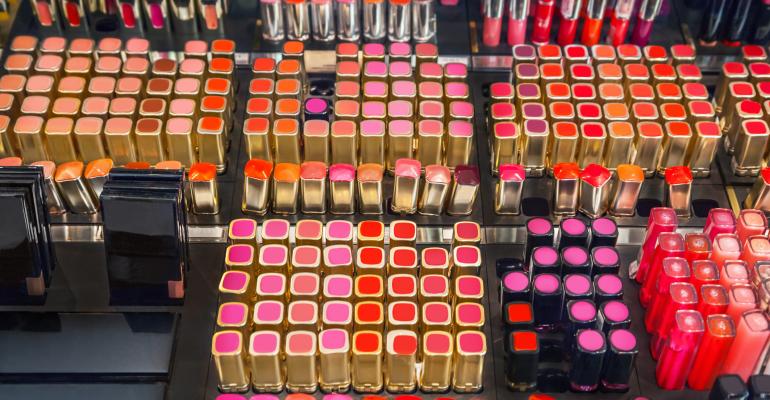They say good things come in small packages, and JCPenney is confident that a new flagship store at the Northridge Mall in Salinas, Calif., will only need 3,000 sq. ft. of selling space to generate consistent foot traffic, brand excitement and strong sales.
The Sephora store inside JCPenney will open in November 2016, with service offerings and innovative merchandise displays, the company said in a statement in April. Larger than the typical 1,500-sq.-ft. location, the store is one of 60 new Sephora inside JCPenney locations that are set to open this year. The move is big because it marks 10 years since the Plano, Texas-based fashion retailer began opening Sephora units inside JCPenney stores in 2006. It means expansion in one of the few retail categories that post consistent sales increases through bricks-and-mortar locations, and it exploits an important competitive advantage over Amazon.com, according to industry observers.
“Take companies like Ulta Beauty or Sephora. They are insulated from Amazon.com,” says Howard Davidowitz, chairman of Davidowitz & Associates, a national retail consulting and investment-banking firm headquartered in New York City. “Amazon can’t put makeup on you. They are doing something Amazon can’t do. That is a very big deal.”
Both Ulta, which plans to open 100 stores in fiscal year 2016, and Sephora pamper shoppers with complimentary consultations and mini-makeovers. Those services are not just tertiary in the battle to stay competitive. Ulta Beauty, for instance, posted a same-store sales increase of 15.2 percent for stores and e-commerce, along with a 23.7 percent increase in net sales.
Changes in the beauty industry have bolstered the growth of chains like Sephora and Ulta, and transformed the beauty aisles in drug stores. Even big-box retailers like Target employ beauty consultants to answer customer questions and advise on purchasing decisions.
The beauty category is good for retail business and retail real estate. As a business type, the grouping folds into the U.S. Department of Commerce’s health and personal care category. In May, health and personal care registered a 7.3 percent change in total year-over-year sales, coming second only to building materials and garden equipment. It is one of the few segments where its operators consistently post positive same-store sales and profits, and are planning for net brick-and-mortar openings, instead of worrying about how to resist the advance of online retailing.
L’Oreal: Giving the beauty industry a touch up
What do jumbo eye pencils, natural hair care for African-American women and a salon nail polish brand all have in common? L’Oreal SA owns all of those brands—Nyx Cosmetics, Carol’s Daughter and Essie, respectively. Aside from integrating the companies into its own business, the beauty giant helped merchandise the products in drug stores in ways that enhanced customers’ shopping experiences and kept them spending.
“To enhance relationships with retailers, L’Oreal would launch exclusive products though a channel for a period of time,” says Erin Lash, an analyst at Chicago-based research firm Morningstar. “It creates excitement and drives traffic to the store.”
L’Oreal’s consumer product segment chalked up sales gains of almost 4.0 percent, a sharp increase from the year-ago improvement of 1.7 percent, according to research from Morningstar. Despite intense competition in its business, L’Oreal’s stable of consumer brands carries significant weight with retailers, who depend on the brand’s ability to drive traffic into their stores.
Essie is only one of L’Oreal’s more recent success stories that are helping to bolster retail tenants. In early June, the Nyx Cosmetics store at Kings Plaza Shopping Center in Brooklyn, NY, hosted a meet and greet event with social media beauty expert Jackie Aina, to celebrate its grand opening. The event delivered on foot traffic, but also maintained the momentum behind Nyx Cosmetics, which opened its 11th store that day as part of a national rollout.
L’Oreal bought Nyx in 2014 for $500 million, and it looks like the investment is already bringing in rewards. Nyx, which usually sells products from sleek displays in drug stores, is now positioning itself for growth through its own retail footprint.


